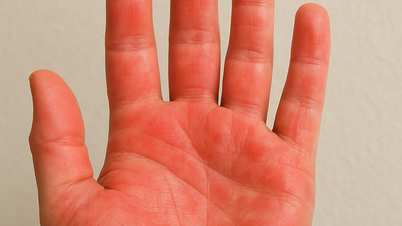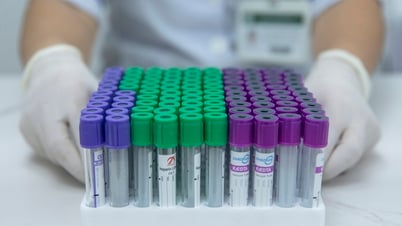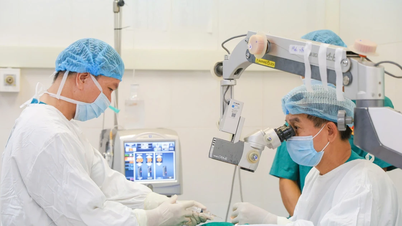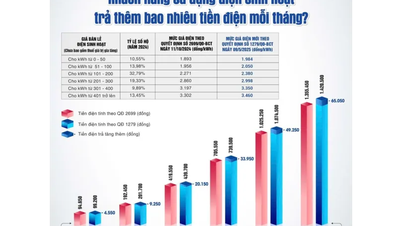The information was shared by Dr. Nguyen Trung Cap, Deputy Director of the Central Hospital for Tropical Diseases, on the sidelines of the National Scientific Conference on Infectious Diseases and HIV/AIDS, which took place on November 1.
According to Dr. Cap, changes in living environment and socio-economic conditions also create opportunities for many types of parasites to break out. Typically, the disease of roundworms in cats and dogs transmitted from pets to humans has recently increased significantly. In recent years, the hospital has received many patients infected with roundworms in cats and dogs.
Dogs and cats carry many types of parasites. If they are not regularly dewormed, parasite eggs can spread and pollute the environment. When eggs stick to the fur of pets and are then petted by humans and not cleaned properly, they can easily spread disease. Parasites such as lice, bugs, and ticks on pets inherently carry many pathogens and can infect humans.

Doctor Nguyen Trung Cap, Deputy Director of the Central Hospital for Tropical Diseases. (Photo: N.Loan)
In addition, the habit of eating uncooked dishes (salads, rare, raw) is also a factor that increases the risk of parasitic infection. If processed from meat or vegetables carrying parasites, the risk of infection to humans is very high. At the same time, poor waste management also increases the risk of spreading parasites.
In addition to the increasing number of parasitic infections, in recent years the world has been facing the risk of the emergence and spread of emerging infectious diseases.
According to experts, with emerging infectious diseases, humans cannot predict (like COVID-19). However, if we detect clusters of cases early and have early isolation and containment measures, we can control the epidemic relatively well.
On the contrary, if infectious diseases are not detected early and handled properly, allowing an outbreak like COVID-19 to occur, it will be extremely difficult to control, causing great damage. “Emerging diseases are diseases that we cannot predict. They can be nothing special but can also be pandemic diseases. Therefore, we must monitor early to see if they have the risk of causing a major pandemic. If there is such a risk, we must make efforts to control them to avoid causing enormous damage," Dr. Cap emphasized.
Experts also note that infectious diseases that were previously well controlled but then neglected can flare up again, this is called a re-emergence. For example, diphtheria, whooping cough, and tetanus were previously well-vaccinated, so the number of people infected was low. When vaccination is not guaranteed, the disease breaks out in localities.
“Recently, some localities have recorded outbreaks of whooping cough, diphtheria, and neonatal tetanus. If vaccination is not well controlled, it could threaten the outbreak of more dangerous diseases such as polio,” Dr. Cap informed.
The National Scientific Conference on Infectious Diseases and HIV/AIDS is held every two years and is an important event in scientific research activities, experience exchange and application of new techniques in diagnosis and treatment of infectious diseases and HIV/AIDS.
This National Scientific Conference on Infectious Diseases and HIV/AIDS was held for 3 days from October 31 to November 2, with 136 reports, of which 113 were presented at the conference and 13 were posted on boards.
Source: https://vtcnews.vn/gia-tang-nhiem-ky-sinh-trung-tu-thu-cung-ar905196.html




![[Photo] General Secretary To Lam concludes visit to Russia, departs for Belarus](https://vphoto.vietnam.vn/thumb/1200x675/vietnam/resource/IMAGE/2025/5/11/0acf1081a95e4b1d9886c67fdafd95ed)
![[Photo] General Secretary To Lam meets and expresses gratitude to Vietnam's Belarusian friends](https://vphoto.vietnam.vn/thumb/1200x675/vietnam/resource/IMAGE/2025/5/11/c515ee2054c54a87aa8a7cb520f2fa6e)
![[Photo] General Secretary To Lam arrives in Minsk, begins state visit to Belarus](https://vphoto.vietnam.vn/thumb/1200x675/vietnam/resource/IMAGE/2025/5/11/76602f587468437f8b5b7104495f444d)



























![[Photo] National Assembly Chairman Tran Thanh Man attends the Party Congress of the Committee for Culture and Social Affairs](https://vphoto.vietnam.vn/thumb/1200x675/vietnam/resource/IMAGE/2025/5/11/f5ed02beb9404bca998a08b34ef255a6)





























































Comment (0)